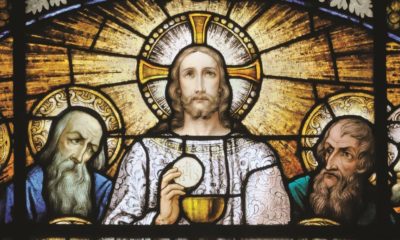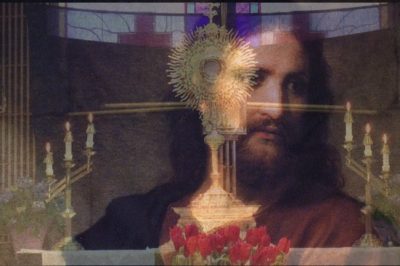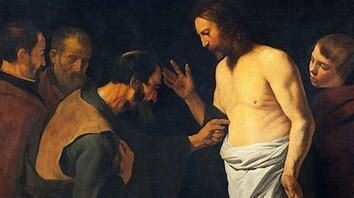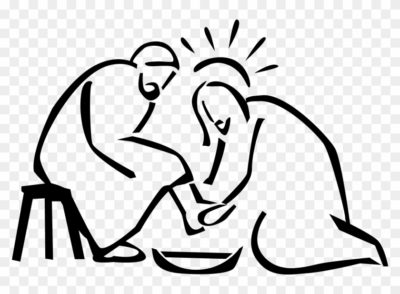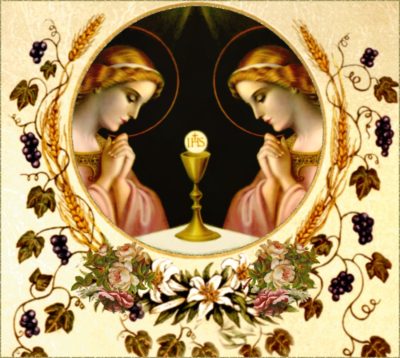April 14, 2022
|by N W
|
0 Comments
|
Commitment, Discipleship, Eucharist, Father Nixon, Humility, Obedience, Service
Holy Thursday
April 14, 2022 — Year C
Readings: Ex 12:1-8, 11-14 / Ps 116 / 1 Cor 11:23-26 / Jn 13:1-15
by Rev. Nixon Negparanon, Pastor
There is a meaningful quotation from an unknown author that says: “It is not the number of servants you have that matters to God, but the number of people you serve.”
This evening’s Mass includes the washing of the feet. I will remove my outer vestment, the chasuble, before I perform the washing of the feet. This is also what Christ did before washing the feet of the twelve apostles. This gesture of Our Lord Jesus Christ, removing His outer garments, has a deeper meaning, not just removing it to make it more comfortable.
The outer garment is a symbol of our titles, our rank, our position in the community. It can be that you are a bishop, a priest, governor, mayor, doctor, lawyer, engineer, teacher, etc. But the question is, are we ready to remove that in order to serve? Jesus removed His outer garment in order to wash the disciples’ feet. In order for Him to serve, He forgets that He is the Son of God, the King of the Universe, the owner of everything, the all-powerful, the Creator.
That’s a great act of humility that Jesus did for all of us. That’s why, in Saint Paul’s letter to the Philippians (Phil 2:6), he said: “Though He was God, He did not think equality with God a thing to be grasped at. Instead, He gave up His divine privileges. He took the humble position of a slave and was born as a human being.”
So Jesus took off His outer garment, His mantle of privileges, and put on an apron of service. That’s what Jesus did as an example of service for us. He forgets His titles, His privileges, and humbles Himself in order to become a servant.
During Jesus’ time, the people who washed feet were only those who were slaves or servants. That is why we can understand in our gospel why Peter refused to have his feet washed by Jesus. Peter could not say he treated Jesus as his master, teacher and savior, and then allow Him to wash his feet. Peter could not take it; that’s why he refused to let Jesus wash his feet.
Just imagine the Creator who kneels down before His creatures in order to serve them. That’s something very humiliating in the eyes of the world, in human eyes. Our Creator kneels down before His creatures in order to wash their feet. It’s something that’s incomprehensible for us. Perhaps the only explanation for us to understand the act of Jesus, is because of God’s great love for us. Only love can do that. And Jesus chose to do it in order to show us the example of how to serve and to be humble.
Perhaps, I can imagine, when Jesus washed the disciples’ feet, God the Father was looking at Jesus and was filled with so much joy and pride. Perhaps He said, “Here is my beloved Son, in whom I am well pleased.”
Sometimes it’s very important for us to forget our positions in order to humbly serve others. This reminds me of my former parishioner when I was still at Our Lady of Nazareth. The parishioner was a doctor, a pediatrician. One day a mother brought her child for a checkup, and it happened that, when they reached the clinic, her car broke down; she had a flat tire. When the doctor learned that she had a flat tire, he checked the child first, and after the checkup, he went to change the tire of his patient. He even accompanied the mother to bring the bad tire to the shop to be fixed. An act of service, an act of humility, forgetting oneself in order to serve others.
In the last verse of our gospel today, it tells us: “If I then, your Lord and Teacher, have washed your feet, you also ought to wash one another’s feet. I have given you an example to imitate.” This is the command of Jesus, especially today. That’s why Holy Thursday is also called Maundy Thursday. “Maundy” is from the Latin word mandatus, which means “commanded.” Jesus is giving us commands this evening.
The first command is to serve one another. Wash each other’s feet. We are all asked to serve one another, not only in times of crisis and trouble, but every day of our lives. I’m sure, every time we serve with humility, the Lord is pleased, seeing us helping and serving each other.
Also, Jesus’ command to His disciples to serve one another happened on the same night on which Jesus instituted the sacrament of the Holy Eucharist. After He gave the instruction of serving each other, He also instructed them to celebrate the Holy Eucharist, when He said, “Do this in memory of me.”
Jesus is giving us two commands: to serve one another and to celebrate the Holy Eucharist. Holy Thursday is the first holy Mass that happened in the Catholic Church. The Holy Eucharist is a living memory when Christ gave Himself, Body and Blood, for the forgiveness of our sins. This is an expression of God’s great love for us. We are mandated to celebrate the Holy Eucharist, but let us also remember that Christ also commanded us to serve one another, to wash each other’s feet.
These two commands of Jesus are interconnected. They cannot be separated, simply because every time we celebrate the Holy Eucharist, it gives us the strength and the courage to serve, and then our service will make the Eucharist meaningful for us.
That is why going to church every Sunday without serving is not good, because we fail to follow what Christ tells us to do.
To serve without going to church is also not good. Why? Because our motive for service is not for God, but for ourselves. That’s why the two must go together. Going to church, prayer, and service must go together. We cannot say, I don’t have to attend Mass; as long as I do good works, I’ll be fine. No, Jesus made that command, that instruction, for us to celebrate the Eucharist in memory of Him.
This reminds of the story of a sacristan who served the Church for a very long time, and one day she got ill. The priest visited the woman, and the woman looked worried. So the priest told the woman, “Don’t be afraid. Is there something you’re worried about?” And the woman said, “Father, I’m worried that, on the day I meet God, what I will tell Him.” The priest smiled and said, “What you need to do is just show Jesus your hands and your knees, and that will be enough.”
In this Mass we pray that, when the time comes for us to meet our Lord and Creator, our Judge, that our knees reveal our being prayerful, and our hands show we are merciful and helpful to those people who need our help.
Let us not forget: It is not the number of servants you have that is important to God, but the number of people you serve.
KEEP READING
 540-586-8988
540-586-8988 


